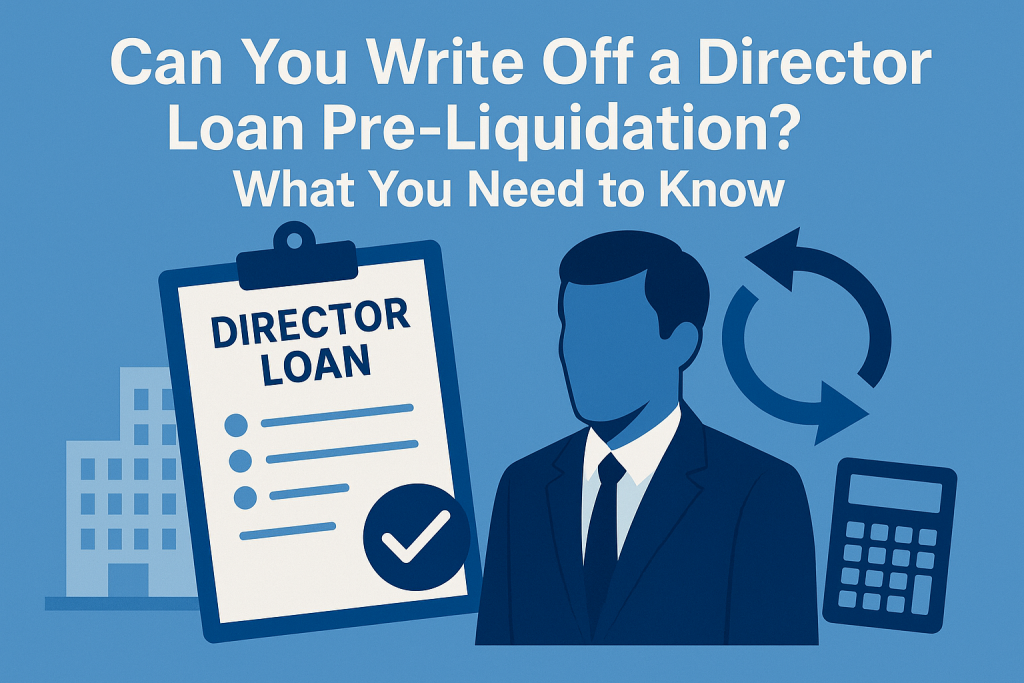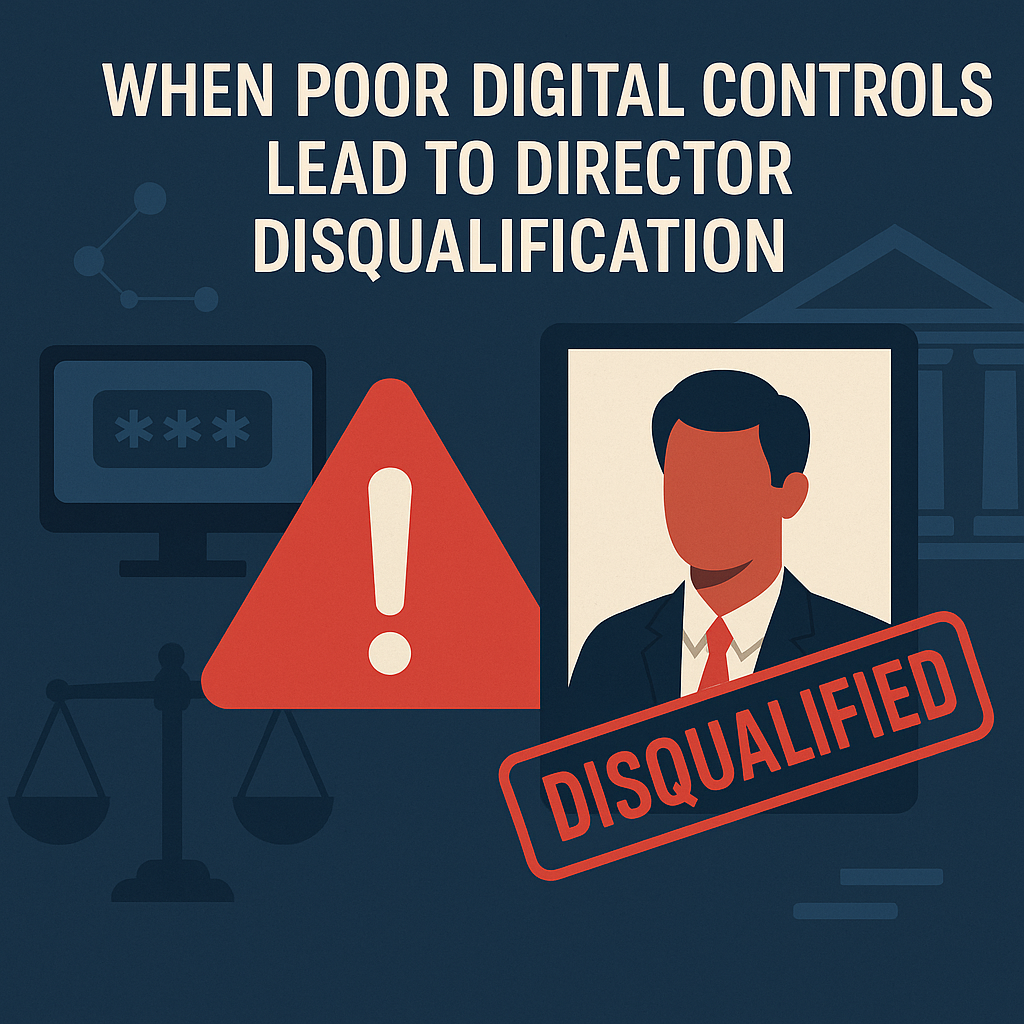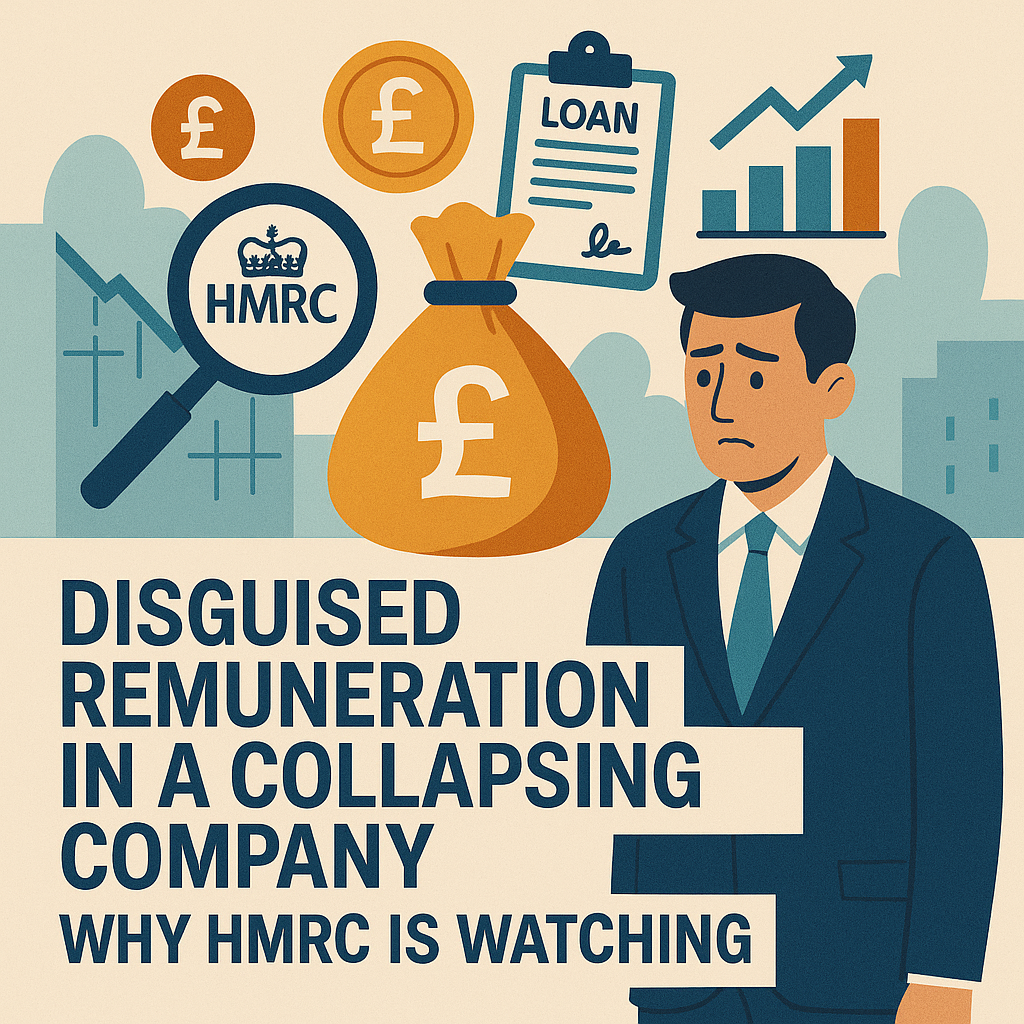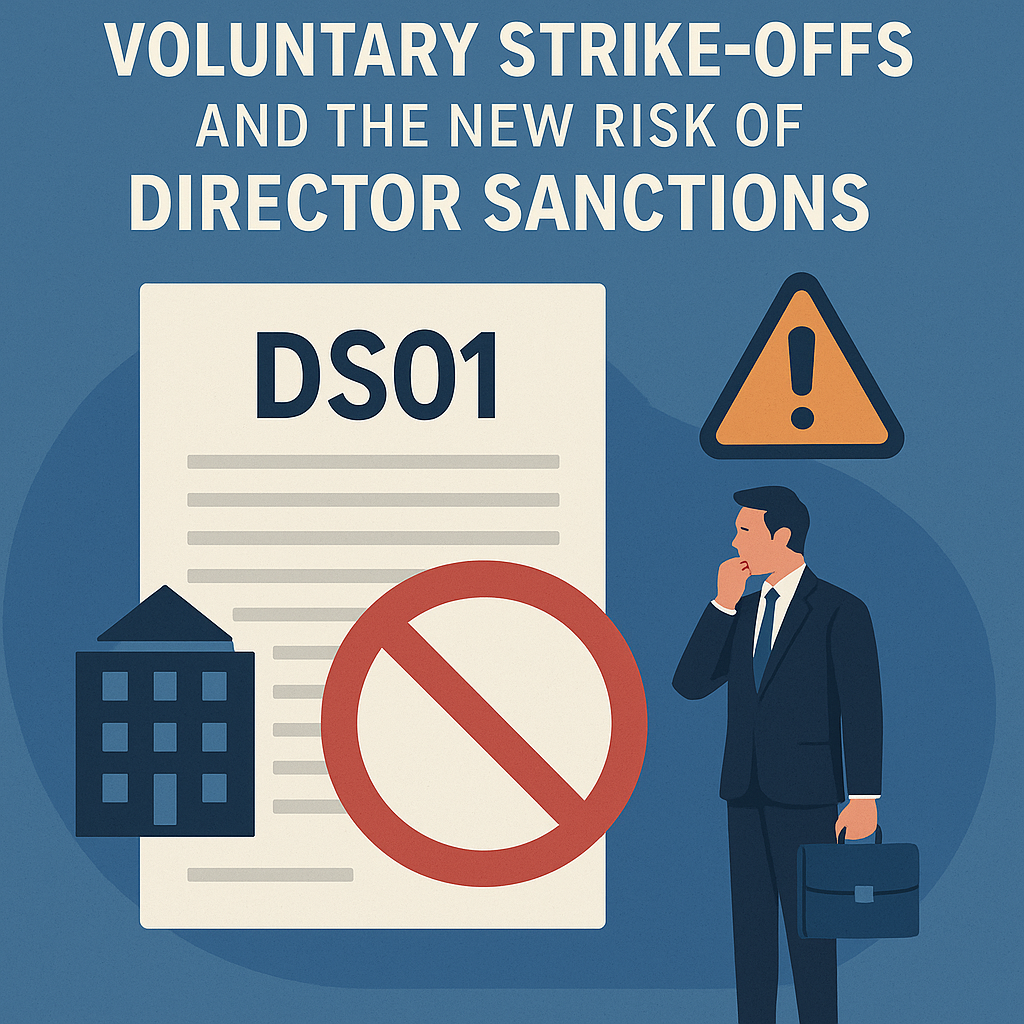Posts by admin
Unlawful Dividends vs Director Loans: How Liquidators Decide Which One to Pursue
Why This Battle Matters When a company goes under, one of the first things a liquidator or administrator does is follow the money. And what they’re looking for, more often than not, is how directors paid themselves. Here’s the problem. What you thought was a harmless dividend or a short-term loan can come back with…
Read MoreCan You Write Off a Director Loan Pre-Liquidation?
Why Directors Ask This Question When a company is heading towards insolvency, many directors start looking for ways to tidy up the books. One of the most common issues is an overdrawn director loan account (ODLA). On paper, it looks simple: if you write off the loan before liquidation, it disappears. But in reality, the…
Read MoreSection 455 CTA 2010: The Hidden Tax Risk Lurking Behind Your Director Loan
If you’ve ever taken a director’s loan from your company, even temporarily, you may assume it’s simply a matter of repaying it or clearing the books. But there’s a tax sting many director’s overlook. It’s found in Section 455 of the Corporation Tax Act 2010. This lesser-known provision creates a tax liability on outstanding director…
Read MoreAre You Really Liable? When Director Loans Are Reclassified or Unenforceable
Overdrawn Director Loans: Why They’re Not Always What They Seem Overdrawn director loan accounts (ODLAs) are a common feature in insolvent companies. On the surface, they appear straightforward, a director owes the company money. Often, the statement of affairs will list a simple debt, sometimes exceeding six figures. But not all is as it seems.…
Read MoreShared Logins, Poor Systems, and the Path to Director Disqualification
In a distressed company, it’s not just financial decisions that attract scrutiny. Increasingly, investigators are looking at how those decisions were made, and who had access to make them. If a company collapses and the digital infrastructure shows shared logins, vague authorisations, or informal delegation, directors may find themselves facing more than just questions. They…
Read MoreDisguised Remuneration in a Collapsing Company: Why HMRC Is Watching
When a company nears collapse, directors often make fast decisions to protect their income or extract value before liquidation. But what may seem like reasonable planning can easily cross the line into disguised remuneration, which is a red flag for HMRC and liquidators alike. In 2025, we are seeing increased enforcement around the reclassification of…
Read MoreBankruptcy Annulment: Hitting the Reset Button on Insolvency
When someone is declared bankrupt, it can feel like the end of the road. A moment of financial defeat that comes with restrictions, reputational damage, and personal stress. But what if we told you that bankruptcy isn’t always final? Enter: bankruptcy annulment – the legal reset button that can wipe the slate clean and, in…
Read MoreThe Voluntary Strike-Off and the DS01 Form
In recent years, the voluntary strike-off process has become a common tool for winding down dormant or low-activity companies. But in 2025, directors should tread carefully. While the process may appear simple (file a DS01 form with Companies House and the company is struck off), doing so in the wrong circumstances can trigger investigation, sanction,…
Read MoreHow Liquidators Use Digital Forensics to Build Misfeasance Claims
In today’s post-pandemic insolvency landscape, liquidators aren’t just combing through old ledgers and company accounts. They’re digging into inboxes, device metadata, cloud logs, and messaging apps. Misfeasance claims are no longer built solely on poor accounting records. Instead, they are often constructed using digital forensics to track intent, influence, and misconduct. Directors should understand that…
Read MoreHow Investigating Officers Assess Director Conduct During the ‘Twilight Period’
In UK insolvency law, the actions of directors in the run-up to a company’s collapse are under increasing scrutiny. This crucial timeframe, often referred to as the “twilight period”, can determine whether directors face claims for misfeasance, wrongful trading or even disqualification. At IL Advisory, we’ve seen a clear trend in 2024 and into 2025.…
Read More









